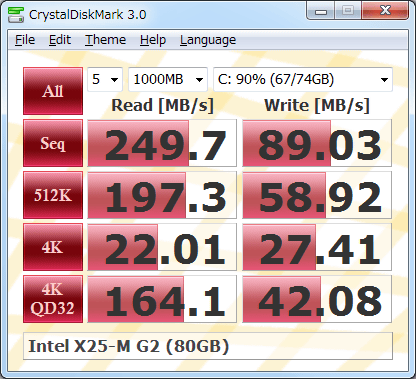


You may not see this for long (and its definitely not common) but you get a freebee simply for reading! Over the last little while, we have been assisting with beta besting new benchmark software called Anvil Storage Utilities which is an absolutely amazing SSD benchmarking utility. In using AS SSD, we have seen low final benchmarks as a result of a bad run in the testing stream which dragged the average down. This is a prime reason why we choose so many similar benchmarks to provide a final relatively consistent idea of synthetic performance. In comparing numbers between Crystal and AS SSD, the reader should realize that Crystal DiskMark repeats tests and the highest of all tests is displayed, whereas, the average is displayed with AS SSD. Many enthusiasts like to benchmark with AS SSD for their needs. AS SSD, for the most part, gives us the worst case scenario in SSD transfer speeds while using SandForce Driven SSDs as they use compression in storage as discussed earlier.

Up until recently, AS SSD was the only benchmark created specifically for SSD testing and it uses incompressible data. It is also great to see because, other than disk access, the 4k results are indicative of the visible upgrade you will see in migration to an SSD from hard drive. It is rare and, in fact, we have only seen this prior from OCZ and OWC SSDs. The 300+ MB/s result for high sequential and 512K write speeds with incompressible (random) data we are seeing is excellent but the key thing to observe in these tests is the low 4k random write disk access result of 103MB/s. The following results will show RAW data (oFill) on the left with random on the right.Ĭrystal Disk Mark testing always shows performance results a bit lower than ATTO Disk Benchmark in our testing. Many new SSD owners who cant wait to test the performance of their SSD often grab this program and run a quick test, not realizing that they are testing with incompressible data rather than compressible data used in testing by manufacturers. Crystal Disk Benchmark is used to measure read and write performance through sampling of raw (0/1 Fill/compressible) or random data which is, for the most part, incompressible.


 0 kommentar(er)
0 kommentar(er)
